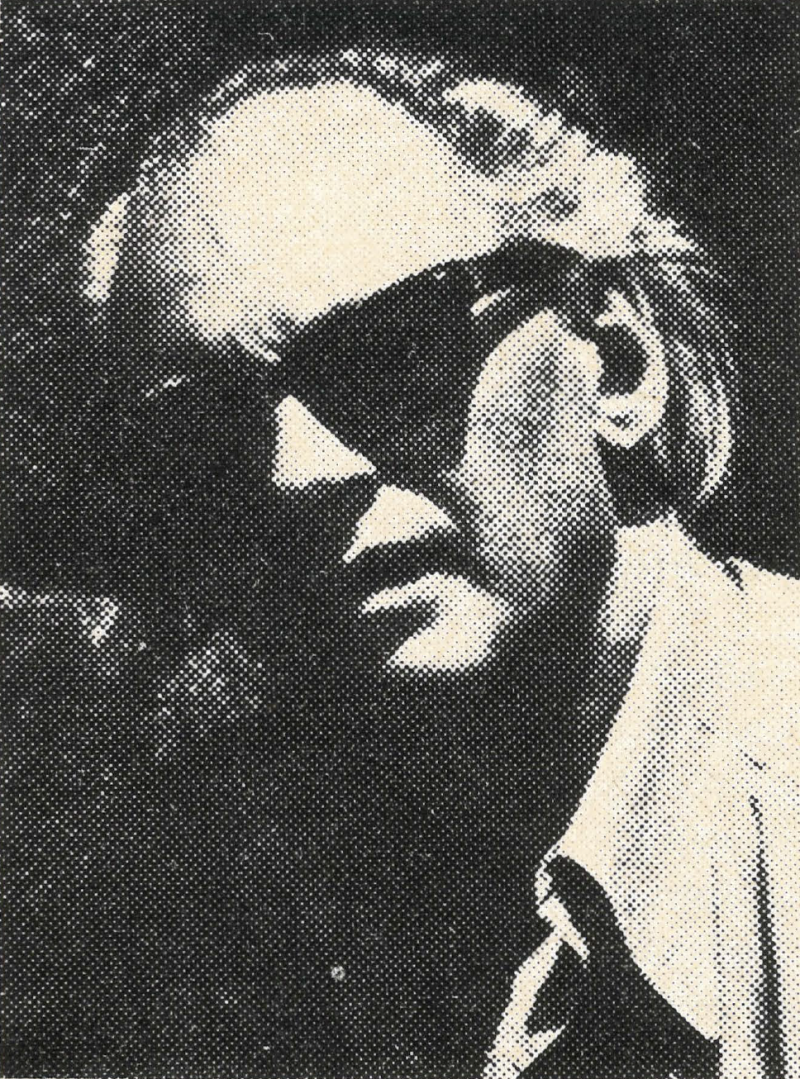“Sundance at Dusk” by Al Purdy

Al Purdy has the instincts of a poker player: sometimes he wins; sometimes he loses. But even in losing he stares you straight in the eye, defying you to call his bluff long after his lesser images have faded and his rhythms stilled. Not that this is an unattractive quality in a poet, even in a poet of Mr. Purdy’s stature. But the relentless egocentricity of this new collection—taken as a whole—draws your attention to the act of creating poetry rather than the verses themselves. Mr. Purdy seems to measure all his experiences against his capacity to extract poems from them.
The idea that the poet considers writing a poem about the experience he undergoes as he is undergoing it demonstrates either an uncritical mind or a profound belief in his own fascination. Naturally, the apotheosis of this concept occurs when the subject matter becomes too painful for the poet to come to grips with, as in ‘The Children’—which describes Indian children scavenging for food on a garbage dump. Mr. Purdy, having given rein to his social conscience, concludes
besides it doesn’t make a very good poem
and isn’t pleasant I guess
but to hell with poems
to hell with poems
Nearly all the 60-odd poems in this volume are written from the ‘I’ point of view which lends the whole a self-absorbed, confessional tone more in keeping with a journal than a book of verse. Nowhere is this more apparent than in ‘I Am Searching For You’. The ‘you’ are two Labrador hunters to whom the volume is dedicated. The poet is flying over the area where they are lost on floating ice; he is researching a magazine article on Search & Rescue.
Jacko Onalik and Martin Senigak
It seems unlikely we shall ever meet
but I wanted you to know
something about me
At the end of a fruitless search the poet muses:
when I have necessity for hope
I hope beforehand someone will be
searching
for me however impossible
These final lines lift the poem above the journalistic reality of the event and invest it with the aura of a parable. (I caught echoes of Robert Frost and Joseph Conrad here—Frost’s simplicity, and Al Purdy works best when he is simplist and Conrad’s obsessive theme of man testing himself against Nature.)
There is no subject upon which Al Purdy cannot versify, it seems, whether it be an ‘English Faculty Versus Students Hockey Game’ or the ‘Upper Silurian Period’, a beer garden in Peru or a Greek cemetery. And yet…and yet, for all the lifting of the hood to show us the engine for all the egoism, Sundance At Dusk is a magnificent, if erratic collection of poems. Even at his most banal Al Purdy is more exciting than many of our contemporary poets at their peak. The best poems, curiously, are about animals real and mythic: ‘Coyotes In Meridian Zoo’ (‘Hey you needle noses and wire whiskers why can’t I be as natural as you’), bass in ‘Deprivations’ (symbol of lost innocence as the poet watches them ‘swim up in their lighted ballroom’) and the title poem, ‘Sundance’—about the buffalo led by a white albino bull. Perhaps this poem is most typical of Al Purdy’s art, containing as it does the full range of his poetic strengths and weaknesses. “Sundance” opens with a factual and geographically detailed account of the herd’s movements from Mexico north—’thudding hooves with the taste of rain/trembling in their mouths’ (a well-thumbed cliche followed by a splendid metaphor). The mood and rhythm change abruptly to a shorter staccato line as Man begins to decimate the herd:
Listen - you can hear them
how the rifles boom
and the great beasts fall
only to change gear quickly as the poet distances himself (and the reader) with an ironic editorial on the fate of the buffalo:
It is hardly to be expected perhaps
by any except the most profound
optimists
that any of the fifty millions
of buffalo will survive 1883
There follows a convoluted image for the destruction of the herd:
blood gushes out
beyond god’s tourniquet
before a vaudevillean shaft at sanctimonious Christians who allowed the slaughter to happen:
(Hello there young lovers
are you having a very good time
in your antique beds and quite
valuable
patchwork shrouds circa 1880…)
Next, as if to alienate us from a noble sentiment about the Indians’ mystical relationship with the buffalo, comes the gratuitous and recherche detail (shades of Pound’s Cantos?) about the protein value of buffalo meat:
…an organism containing
at least half of 1 per cent of
hydrogen carbon
nitrogen freq. also sulphur et cetera
before elevating the work with a sudden, inspirational association of ideas which forces us to re-examine the entire poem—by equating the white bull and the buffalo herd with Moses and the wandering Israelites. A very fine poem, with the odd lapse, which is why I would rather play poker at Mr. Purdy’s table than most other games in town.
Tony Aspler produces the Eric Friesen show from Toronto. His novels include The Streets of Askelon and One of My Marionettes.

